Met chief awaits reasoning for fatal shooting investigation
- Published
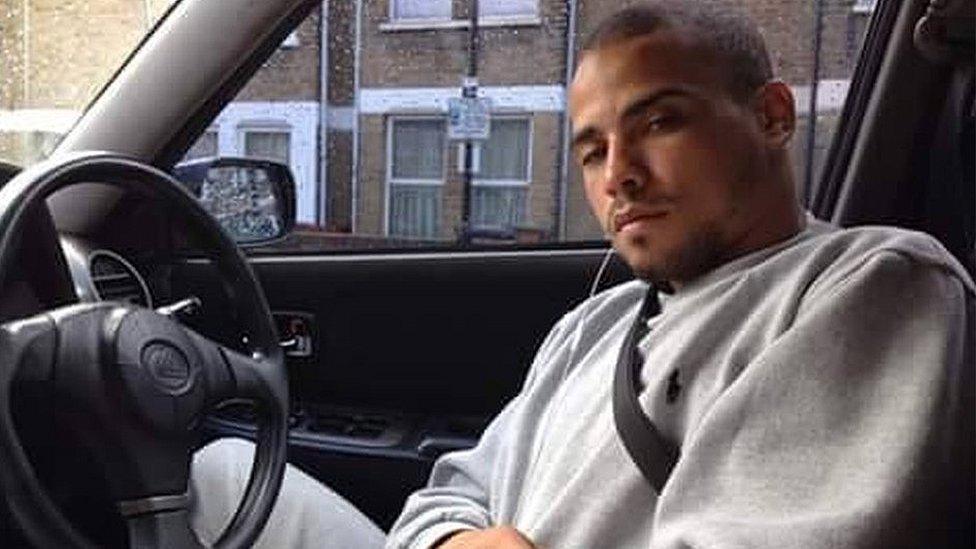
Jermaine Baker was shot in Bracknell Close near to Wood Green Crown Court
London's police chief is hoping for an explanation about why the police watchdog opened a criminal inquiry into the shooting of a man by an officer.
Sir Bernard Hogan-Howe has spoken out after Jermaine Baker was shot dead on Friday during an alleged attempt to spring two convicts from a prison van.
The Independent Police Complaints Commission (IPCC) has opened a homicide investigation.
Sir Bernard said it was an "unusual turn of events".
Following the shooting of Mr Baker, in Wood Green, north London, the men being transported in the prison van - Erwin Amoyaw-Gyamfi, 29, and Erun Izzet, 32 - were jailed for 14 years each, for their part in an attempted "professional hit" in October.
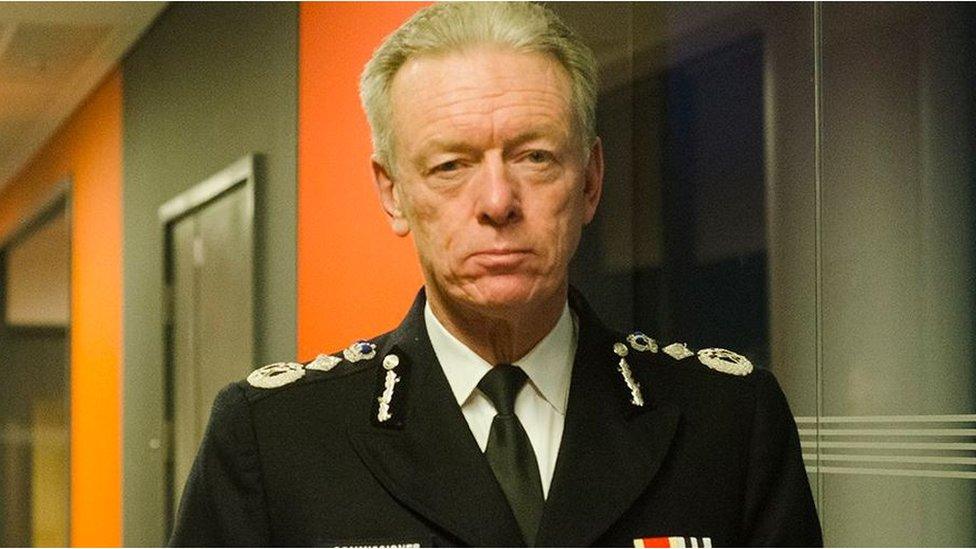
Sir Bernard Hogan-Howe told the Today programme it was an "unusual turn of events"
Speaking on BBC Radio 4's Today programme, Sir Bernard said he hoped to hear more details at a community meeting being held in Tottenham later.
The event is hosted by the Peace Alliance and Tottenham Rights and representatives from the police, the IPCC, Haringey Council and Mr Baker's family are due to attend.
It was called to address concerns about the renewed strain the shooting has placed on relations with police.
It comes after the Metropolitan Police faced criticism for the way it handled the fatal shooting of Mark Duggan in 2011 in Tottenham - leading to riots.
Sir Bernard said: "There will be limits on what the IPCC can tell but at least they will be able to share what they know and we will explain what we can."
He told Today: "I don't have access to the IPCC's investigation.
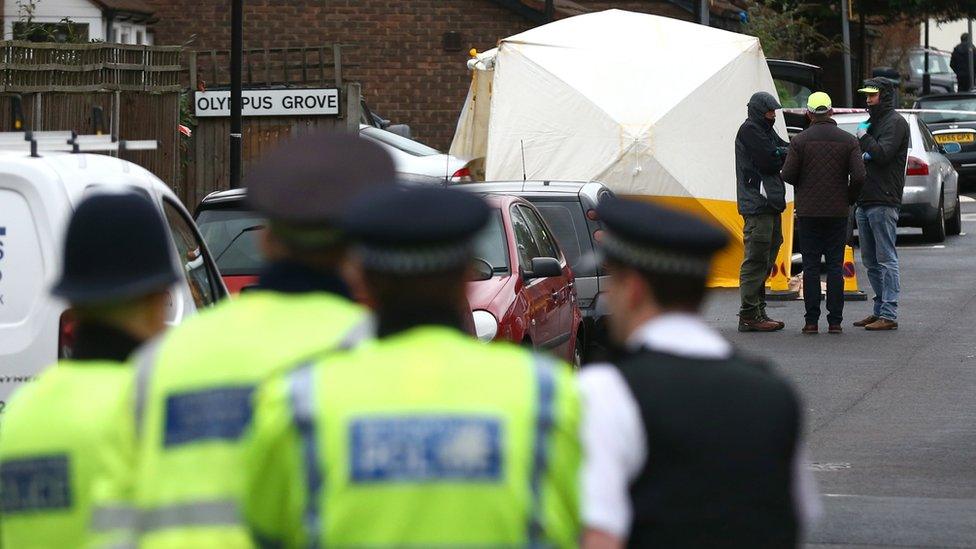
A community meeting is to be held in Tottenham
"They are an independent investigator and of course they have had the chance to talk to witnesses and make some assessment of the scene."
Referring to the homicide investigation, he said: "We are waiting to hear some of the reasoning. But it is an unusual turn of events."
When the investigation was launched, the Met suspended a firearms officer.
The IPCC said , externalMr Baker died of a single gunshot wound.
The investigation does not mean criminal charges will necessarily follow.
Sir Bernard added it was "frustrating" no way had yet been found for officers on covert operations to wear cameras, because they have been deemed too large.
He said: "I'm sure that would have been really helpful in this case to show what exactly what happened."
But 1,500 uniformed officers have worn them this year, he said.
- Published11 December 2015
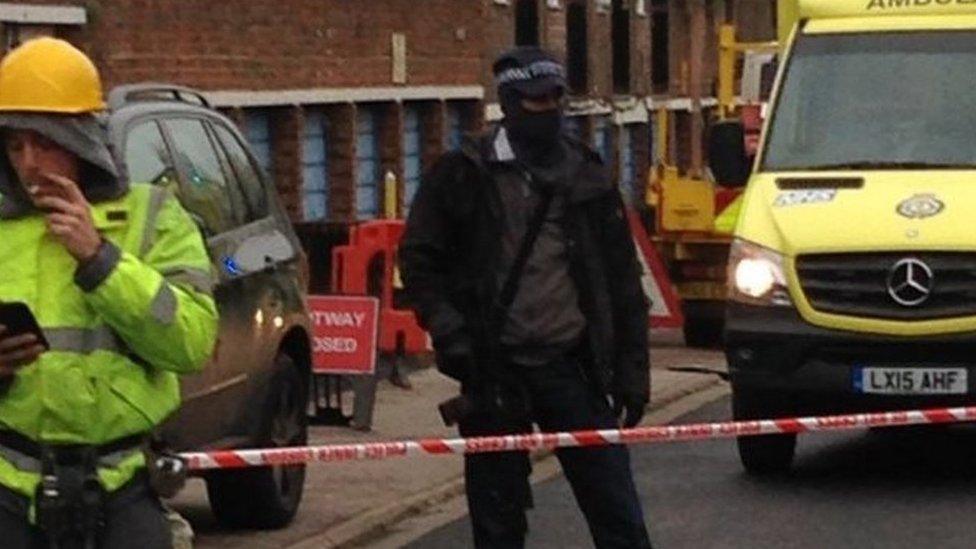
- Published15 December 2015
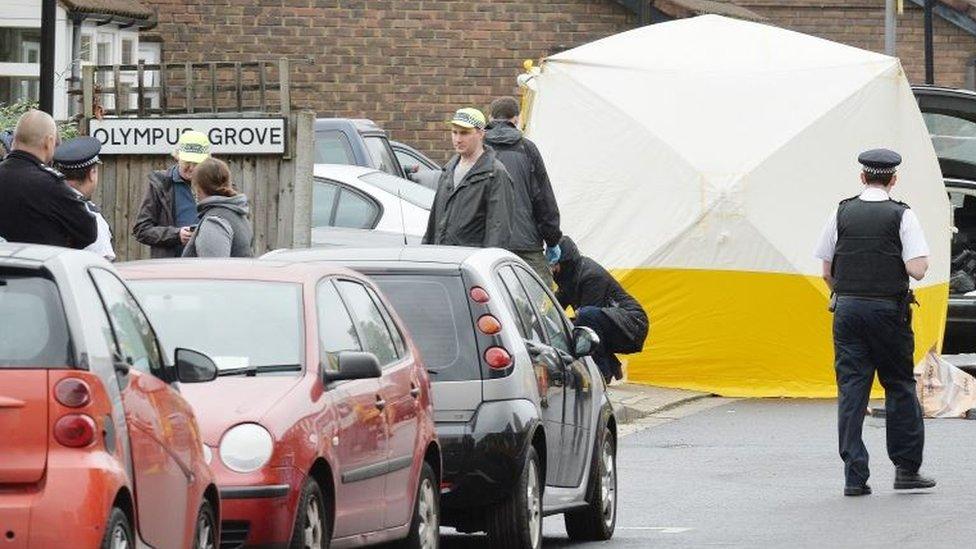
- Published14 December 2015
